Top 15 Best Colleges for International Relations

Harvard University – Shaping Future Diplomats
Nestled in the picturesque heart of Massachusetts, Harvard University stands as an undisputed pinnacle of academic excellence. Its hallowed halls echo with the footsteps of luminaries, past and present, who have been molded into visionaries and leaders. Within this venerable institution, the international relations program emerges as a beacon of inspiration and opportunity.
Harvard’s reputation for nurturing critical thinking and diplomatic acumen is unmatched. Its international relations program is not merely a curriculum; it’s a transformative experience. The fusion of rigorous academics, interactive learning, and real-world engagement elevates students beyond the realm of theory, guiding them into the realm of practical diplomacy and global leadership.
But what truly sets Harvard apart is the synergy between its students and faculty. Distinguished professors, seasoned diplomats, and renowned scholars become mentors, guides, and collaborators in the journey of discovery. This academic camaraderie fosters an environment where ideas are nurtured, opinions are challenged, and innovation thrives.
At Harvard, resources are not a mere convenience; they are a way of life. The university’s extensive libraries, cutting-edge research centers, and global networks amplify students’ capacity to comprehend, analyze, and contribute to the most pressing international issues.
Whether within the walls of a seminar room or through collaborative projects that span continents, Harvard empowers students to understand the nuances of global dynamics and shape their own paths as future diplomats and leaders.
Georgetown University – Bridging Cultures and Nations
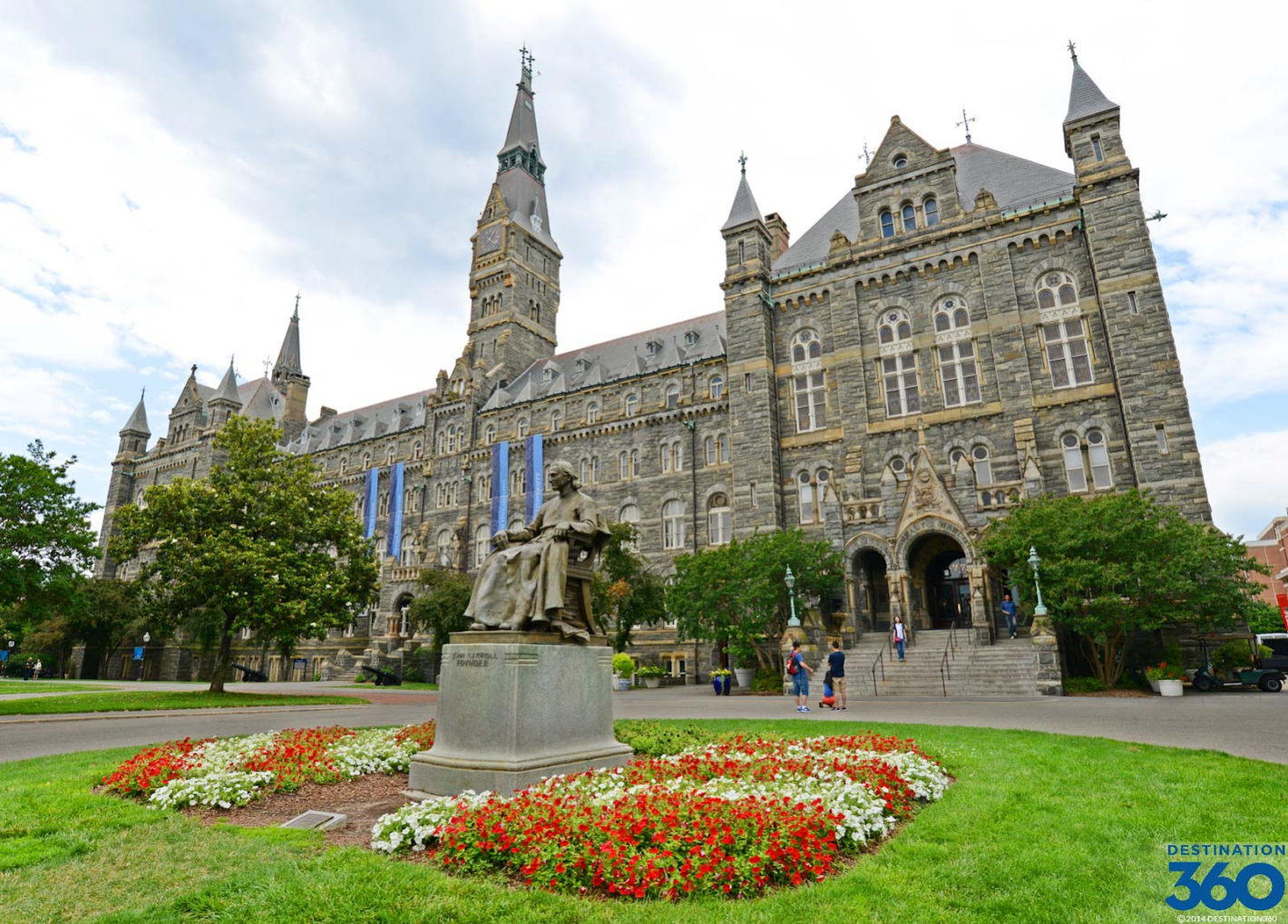
Nestled in the heart of the nation’s capital, Georgetown University radiates the essence of cosmopolitanism. It’s not just a campus; it’s a global crossroads where cultures converge, ideas collide, and diplomacy comes to life. The very air seems charged with the energy of international discourse.
Georgetown’s approach to international relations is a symphony of disciplines. It’s a recognition that the complexities of global affairs demand a multifaceted perspective. Here, political science, history, economics, and cultural studies seamlessly intertwine, giving rise to diplomats who are not confined to a single lens but possess a kaleidoscopic view of the world.
What truly distinguishes Georgetown is its proximity to power. Embassies, international organizations, think tanks – they’re not just abstract concepts; they’re neighbors. The campus is a stone’s throw away from halls of diplomacy where history is made. This proximity translates into real-world insights that enrich the academic journey.
The Georgetown experience is not confined to lecture halls and textbooks. It extends to embassies’ corridors, to meetings with policy makers, to simulations of diplomatic negotiations. The fusion of theory and practice creates a dynamic learning ecosystem where students emerge not only with knowledge but also with the skills to navigate the intricacies of global politics.
London School of Economics and Political Science – A Global Perspective

In the heart of the bustling metropolis of London, the London School of Economics and Political Science (LSE) reigns as an intellectual powerhouse. Its campus isn’t just a physical space; it’s a nexus of ideas that span the globe. Here, minds from all corners of the world convene to explore, challenge, and illuminate the multifaceted tapestry of international relations.
LSE’s international relations curriculum is a voyage into the heart of global dynamics. It’s a journey that transcends borders and disciplines, unraveling the intricate threads that bind nations together. The diversity of students – hailing from diverse backgrounds and perspectives – enriches the discourse, pushing boundaries and fostering an environment where intellectual growth is exponential.
The faculty at LSE are not just educators; they’re vanguards of knowledge. Their expertise extends beyond academic journals; it’s embedded in the corridors of international organizations, in the heart of diplomatic negotiations, and within the very fabric of global change. This faculty-student synergy nurtures a deep-seated understanding of the forces that shape our world.
But LSE’s impact extends beyond its campuses. Its research reverberates through policy corridors, its alumni become trailblazers in diplomacy and international affairs. The education here isn’t confined to theory; it’s a catalyst for actionable change in an ever-evolving world.
Geneva School of Diplomacy – Where Diplomats are Nurtured

Nestled in the diplomatic enclave of Switzerland, the Geneva School of Diplomacy emerges as an incubator of future diplomats. It’s more than an institution; it’s a crucible where theoretical knowledge fuses with practical experience, forging diplomats who can navigate the complexities of our interconnected world.
Geneva School of Diplomacy’s approach transcends the traditional confines of academia. It’s a place where classrooms extend to international organizations, where simulations of diplomatic negotiations are more than exercises; they’re a gateway to understanding the art of compromise, the intricacies of persuasion, and the nuances of international relations.
But it’s not just about classrooms and simulations; it’s about immersion. The location itself becomes a classroom – the diplomatic hub of Geneva, where decisions that shape nations are made. Here, students don’t just learn about diplomacy; they live it, breathe it, and understand its essence in ways that textbooks can’t capture.
Faculty members at Geneva School of Diplomacy aren’t just teachers; they’re mentors who have walked the corridors of power. Their guidance is grounded in experience, and their insights extend beyond the theoretical into the realm of practical wisdom. This amalgamation of academia and experience is what gives students here an edge – an edge that transcends textbooks and prepares them for the challenges of a diplomatic career.
Yale University – Molding Visionary Global Leaders

Nestled within the ivy-covered walls of Yale University, a different kind of education takes shape. It’s not just about acquiring knowledge; it’s about cultivating visionaries, shaping leaders who possess the insight and acumen to navigate the complexities of our global landscape.
Yale’s international relations program is more than a collection of courses; it’s a journey into the core of global affairs. It’s an exploration of historical legacies that shape present realities, a deep dive into cultural nuances that influence international interactions, and an examination of economic forces that underpin geopolitical decisions.
But Yale’s approach is not one-dimensional. It’s a symphony of disciplines that harmonize to provide a holistic view of international relations. Political science intersects with anthropology, economics dances with history, and law entwines with philosophy. This interdisciplinary approach enriches the understanding of global dynamics and prepares students for the intricacies of modern diplomacy.
At Yale, the quest for knowledge doesn’t stop at classroom doors. It extends to discussions with professors, debates with peers, and engagement with the broader world. The university’s commitment to fostering intellectual curiosity empowers students to not only learn about the world but to actively shape it.
Fletcher School of Law and Diplomacy – Pioneering Innovation

Situated within the intellectual haven of Tufts University, the Fletcher School of Law and Diplomacy emerges as a pioneer of innovative approaches to international relations. Here, the traditional boundaries between disciplines blur, giving rise to diplomats who don’t just analyze problems; they solve them.
The hallmark of Fletcher’s approach is its interdisciplinary foundation. It’s a recognition that international relations can’t be understood in isolation. Political science converges with economics, law mingles with history, and technology intertwines with ethics. This fusion of disciplines mirrors the complexity of real-world challenges, empowering students to approach them with comprehensive solutions.
Fletcher’s commitment to innovation is visible in its teaching methods. Here, students don’t just absorb information; they apply it to real-world scenarios. Case studies become blueprints for action, simulations of diplomatic negotiations become stages for innovative solutions, and research projects become catalysts for change.
The faculty at Fletcher aren’t just educators; they’re mentors who guide students through uncharted territory. Their expertise extends beyond academia; it’s rooted in practical experience – in boardrooms, in peace negotiations, in the heart of global crises. This faculty-student synergy becomes a crucible where new ideas are forged and where innovation becomes the norm, not the exception.
Australian National University – Asia-Pacific Expertise
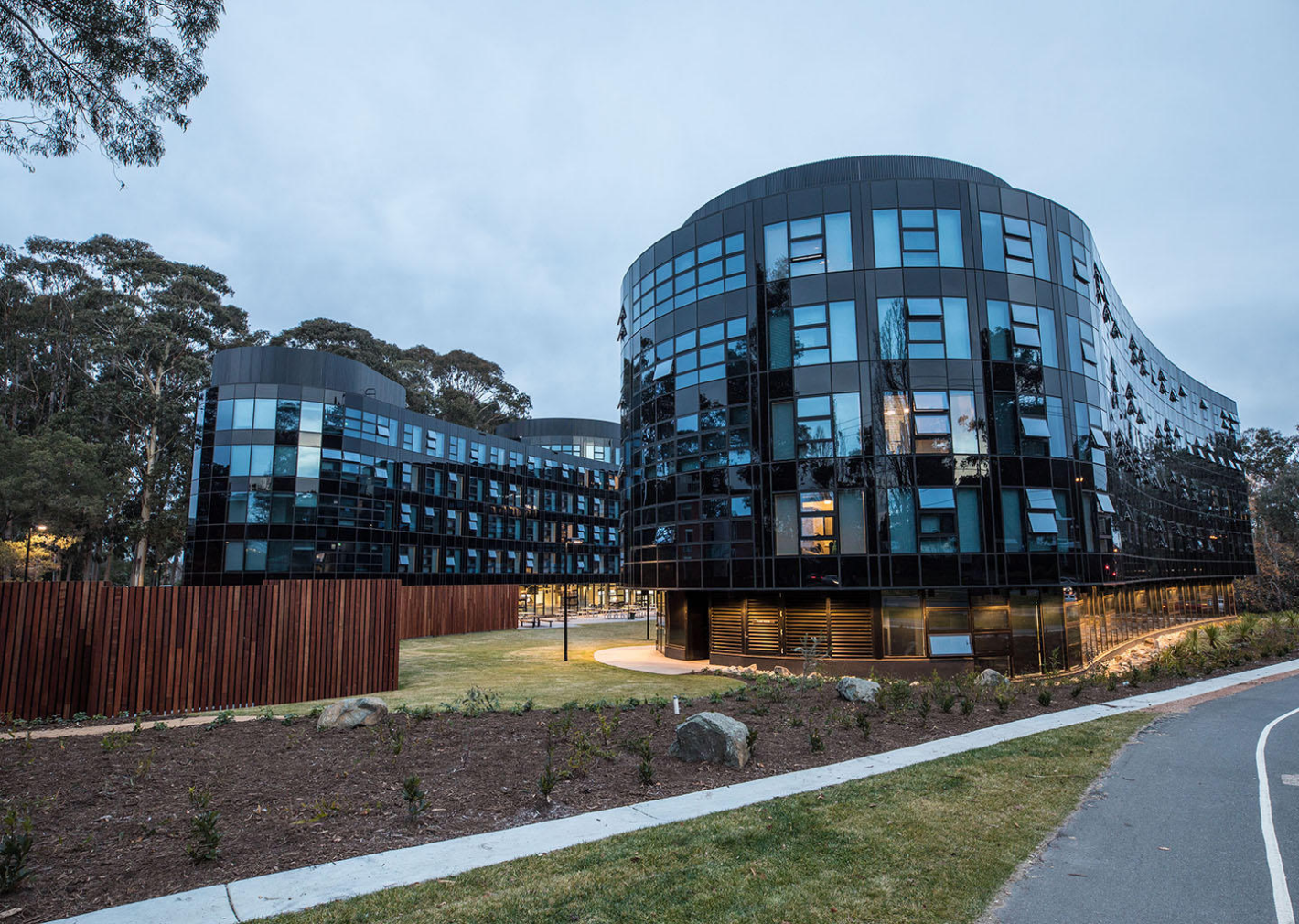
Amid the vibrant tapestry of Australia’s capital, the Australian National University (ANU) stands as a testament to academic excellence. It’s a place where international relations transcend geographical boundaries, where the Asia-Pacific region becomes not just a study subject but a living laboratory.
ANU’s international relations program is more than theory; it’s an exploration of the complex dynamics that shape the Asia-Pacific region. The program’s strategic location in Canberra – the heart of Australian politics – provides students with a unique vantage point. Here, international relations aren’t just distant concepts; they’re palpable realities that play out in the university’s backyard.
But ANU’s impact extends beyond geography. Its emphasis on Asia-Pacific expertise gives students insights that are sought after in diplomatic corridors and international organizations across the world. This expertise becomes a bridge that connects students to global opportunities and equips them to tackle the unique challenges of the region.
The faculty at ANU are not just teachers; they’re mentors who guide students through the complexities of international relations in the Asia-Pacific context. Their expertise is grounded in practical experience and research, enriching the classroom with insights that extend beyond textbooks.
Sciences Po – Nurturing Critical Thinkers

In the heart of the City of Light, Sciences Po stands as a beacon of intellectual curiosity. It’s not just an institution of learning; it’s a crucible where critical thinkers are nurtured, where minds are honed to analyze and interpret the complex tapestry of global affairs.
Sciences Po’s approach to international relations is a symphony of perspectives. Here, theory is complemented by a rigorous examination of historical, cultural, and economic contexts. The curriculum is a journey through the annals of global history, a deep dive into the forces that shape international dynamics, and a reflection on the ethical dimensions that underpin international decisions.
But what truly distinguishes Sciences Po is its commitment to multidisciplinary learning. Political science intersects with sociology, economics converges with philosophy, and law entwines with anthropology. This fusion of disciplines enriches students’ understanding of the complexities of global challenges.
Sciences Po’s focus on nurturing critical thinking is mirrored in its teaching methods. Discussions become arenas for intellectual exploration, debates become platforms for diverse viewpoints, and research projects become avenues for deep analysis. This approach empowers students not only to understand global challenges but to question them, to deconstruct them, and to propose innovative solutions.
Johns Hopkins University – Research Powerhouse

Johns Hopkins University stands as a titan of research-driven education. Its campuses are incubators of innovation, its classrooms are crucibles of discovery, and its programs are gateways to groundbreaking knowledge. Within this academic titan, the international relations program emerges as a research powerhouse that equips students with the analytical tools to dissect global complexities.
Johns Hopkins’ approach is rooted in the belief that research is not just an academic exercise; it’s a foundation for understanding and influencing the world. The international relations program here is a marriage of theory and empirical research, providing students with the skills to navigate the complexities of global politics armed with data-driven insights.
The faculty at Johns Hopkins are not just educators; they’re researchers who are at the forefront of understanding global dynamics. Their expertise extends beyond textbooks; it’s embedded in their research articles, in their engagements with policymakers, and in their contributions to international organizations.
But research at Johns Hopkins isn’t confined to the ivory tower. It extends beyond classrooms to fieldwork, to engagement with real-world challenges. Students collaborate with faculty on research projects that span continents, contributing to a deeper understanding of global issues and enhancing their own analytical skills.
Princeton University – Interdisciplinary Excellence

Nestled within the verdant landscape of Princeton University, a different kind of education takes shape. It’s not just about acquiring knowledge; it’s about cultivating visionaries, shaping leaders who possess the insight and acumen to navigate the complexities of our global landscape.
Princeton’s international relations program is more than a collection of courses; it’s a journey into the core of global affairs. It’s an exploration of historical legacies that shape present realities, a deep dive into cultural nuances that influence international interactions, and an examination of economic forces that underpin geopolitical decisions.
But Princeton’s approach is not one-dimensional. It’s a symphony of disciplines that harmonize to provide a holistic view of international relations. Political science intersects with anthropology, economics dances with history, and law entwines with philosophy. This interdisciplinary approach enriches the understanding of global dynamics and prepares students for the intricacies of modern diplomacy.
At Princeton, the quest for knowledge doesn’t stop at classroom doors. It extends to discussions with professors, debates with peers, and engagement with the broader world. The university’s commitment to fostering intellectual curiosity empowers students to not only learn about the world but to actively shape it.
Stanford University – Real-world Impact
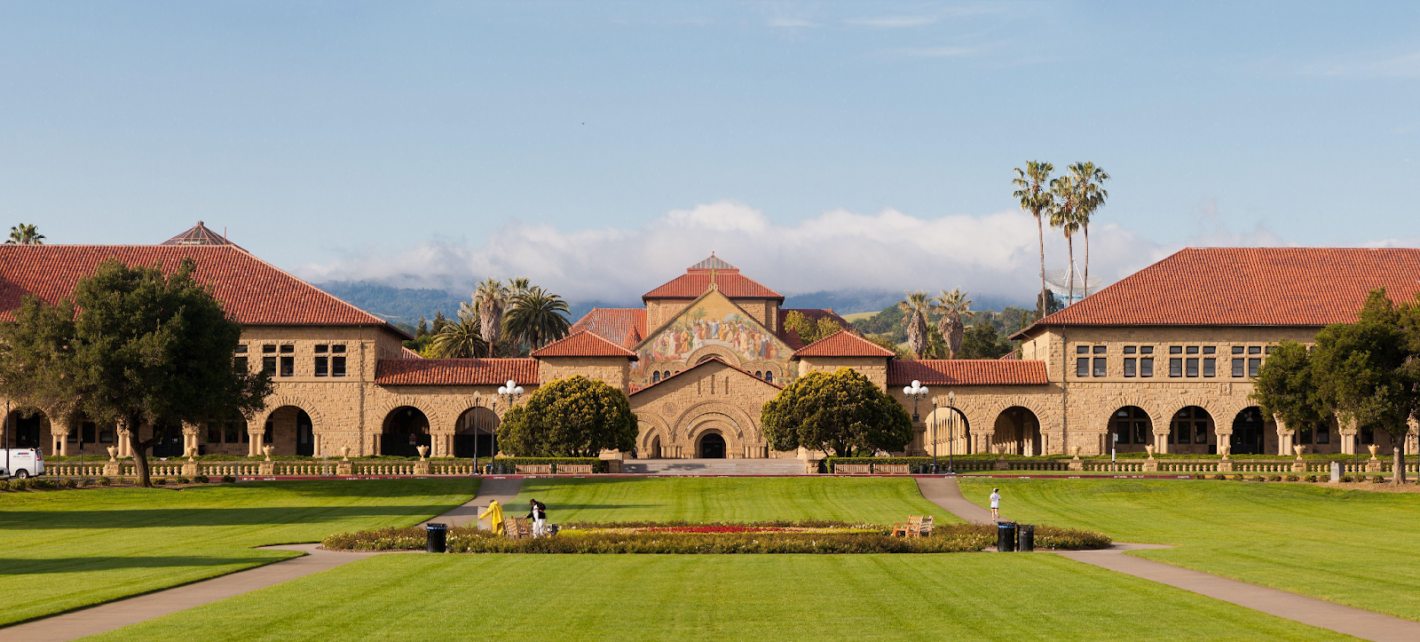
Nestled within the idyllic beauty of California, Stanford University stands as an epicenter of innovation. Its sprawling campus isn’t just a place of learning; it’s a launchpad for ideas that have the potential to reshape the world. Within this environment of innovation, the international relations program at Stanford becomes a crucible where theory meets action.
Stanford’s approach to international relations is not confined to lecture halls; it’s deeply entrenched in the real world. Here, theory is a stepping stone to action, where ideas are not just discussed but put into practice. The university’s proximity to Silicon Valley and its collaborations with global organizations create an ecosystem where research has the potential to transform into real-world solutions.
But the impact of Stanford’s program goes beyond its boundaries. Students are encouraged to take their learning beyond classrooms, to internships in international organizations, to fieldwork in conflict zones, and to engagements with global challenges. This emphasis on experiential learning equips students to make meaningful contributions to global affairs.
The faculty at Stanford are not just educators; they’re mentors who guide students through the process of translating theory into impact. Their expertise isn’t limited to textbooks; it’s embedded in their research, in their connections with global leaders, and in their contributions to international policy discussions.
University of Oxford – Scholarly Exploration

In the heart of the historic city of Oxford, University of Oxford stands as a beacon of intellectual curiosity. It’s not just an institution of learning; it’s a crucible where critical thinkers are nurtured, where minds are honed to analyze and interpret the complex tapestry of global affairs.
Oxford’s approach to international relations is a symphony of perspectives. Here, theory is complemented by a rigorous examination of historical, cultural, and economic contexts. The curriculum is a journey through the annals of global history, a deep dive into the forces that shape international dynamics, and a reflection on the ethical dimensions that underpin international decisions.
But what truly distinguishes Oxford is its commitment to multidisciplinary learning. Political science intersects with sociology, economics converges with philosophy, and law entwines with anthropology. This fusion of disciplines enriches students’ understanding of the complexities of global challenges.
Oxford’s focus on nurturing critical thinking is mirrored in its teaching methods. Discussions become arenas for intellectual exploration, debates become platforms for diverse viewpoints, and research projects become avenues for deep analysis. This approach empowers students not only to understand global challenges but to question them, to deconstruct them, and to propose innovative solutions.
American University – Practical Learning
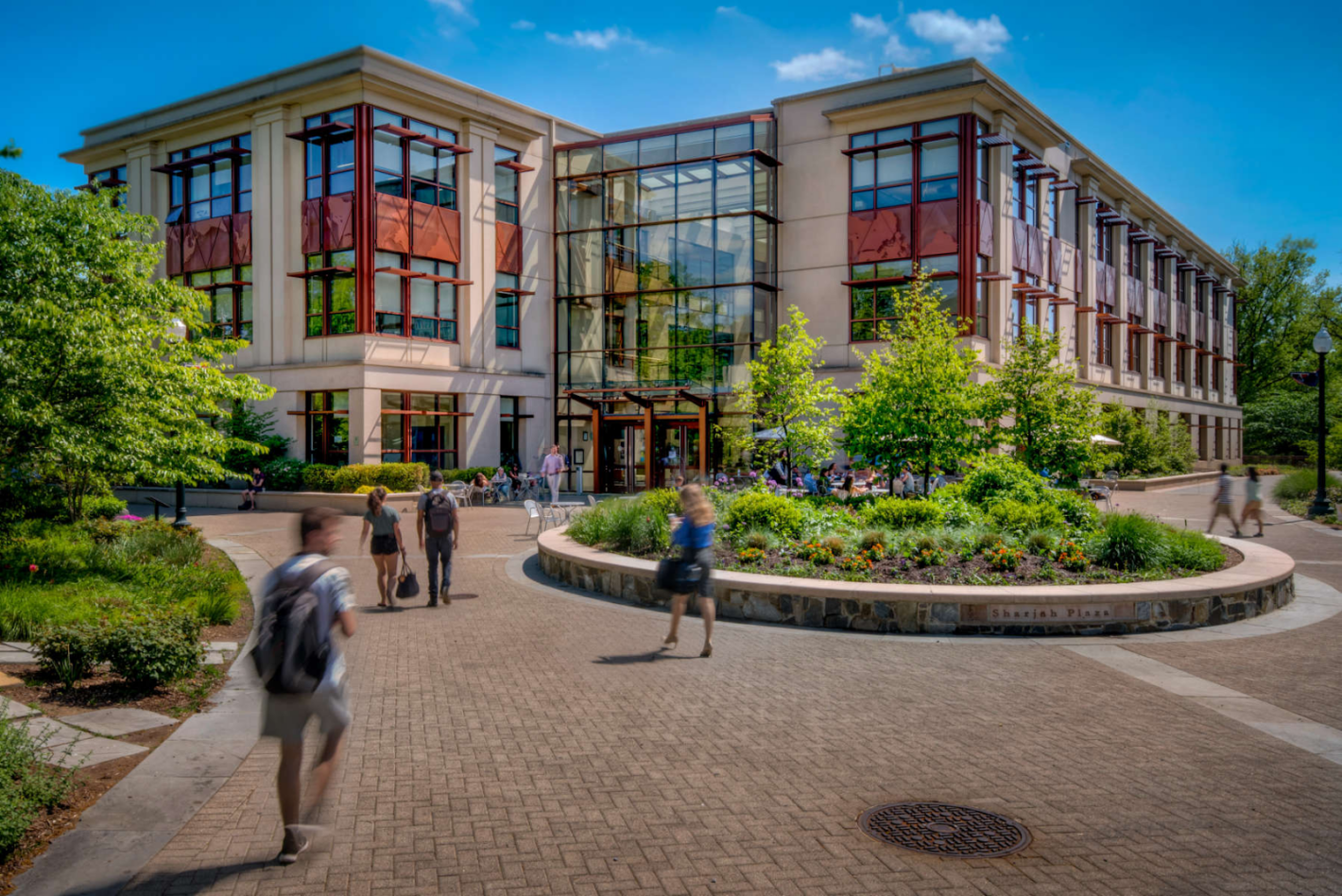
Nestled within the heart of the American political landscape, American University stands as a nexus of practical learning. It’s not just a campus; it’s a living laboratory where international relations aren’t just studied – they’re experienced. Within this environment of experiential learning, students are equipped with the skills to make an immediate impact in the world of diplomacy.
American University’s approach transcends the traditional boundaries of academia. Here, theoretical knowledge is only the starting point. Students are encouraged to take their learning beyond textbooks and into the realm of real-world engagement. Model United Nations simulations become stages for negotiation, internships become windows into the world of international organizations, and fieldwork becomes an opportunity to understand global challenges firsthand.
But it’s not just about practical experience; it’s about building leadership skills. American University fosters an environment where negotiation, communication, and critical thinking are not just buzzwords; they’re the pillars upon which diplomatic careers are built.
The faculty at American University are not just educators; they’re mentors who guide students through the intricacies of practical diplomacy. Their expertise extends beyond academic journals; it’s grounded in real-world experience, in engagements with global challenges, and in contributions to the world of international affairs.
Columbia University – Urban Diplomacy Hub
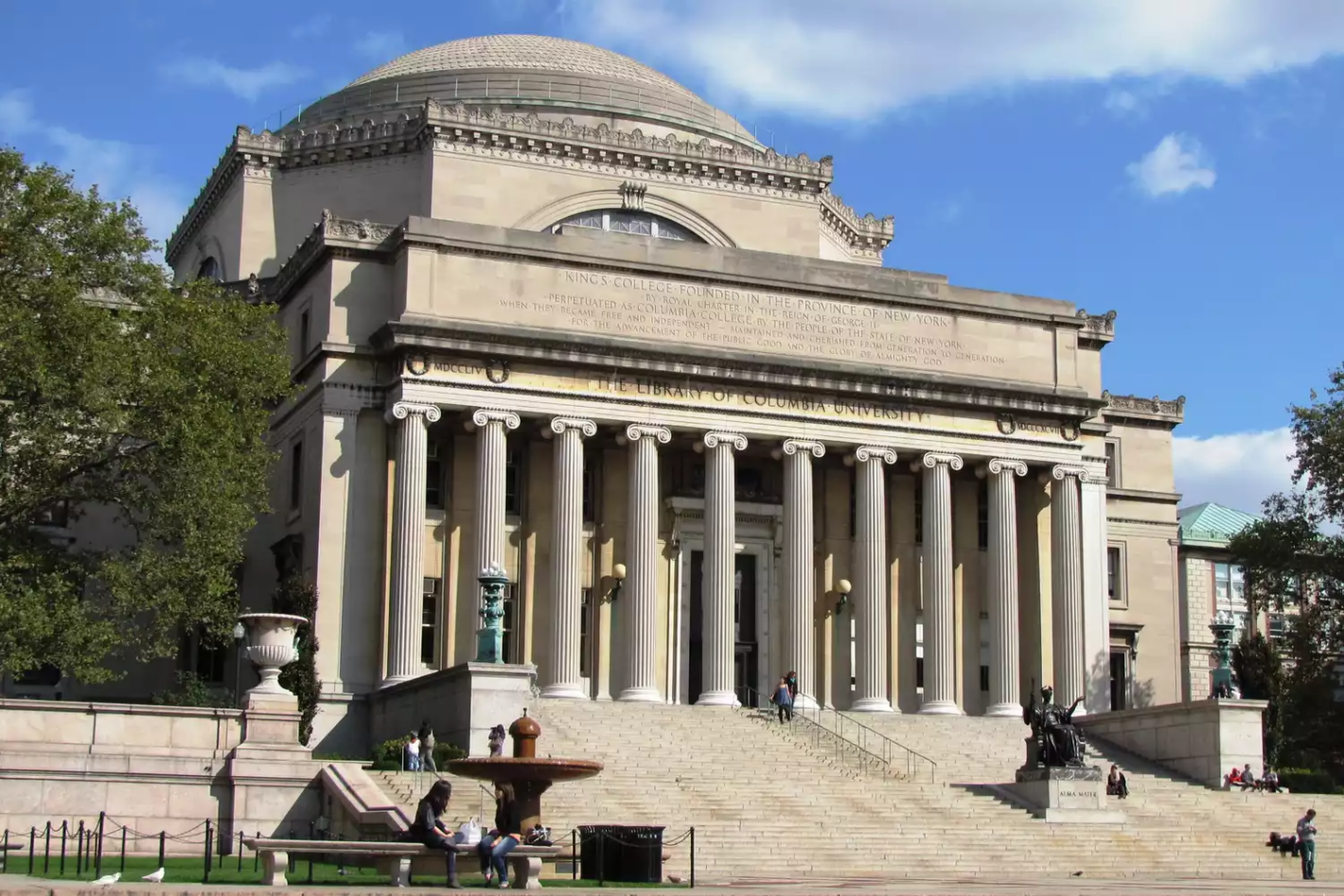
Columbia University stands as a nexus of intellectual exploration, located at the crossroads of New York City – the world’s epicenter of diplomacy and global affairs. Within this urban landscape, the international relations program at Columbia becomes a crucible of learning that extends far beyond the classroom walls.
Columbia’s approach to international relations is rooted in its surroundings. The city itself becomes a living laboratory, offering unparalleled access to embassies, international organizations, and diplomatic missions. The corridors of power are not distant concepts; they’re tangible entities that students can interact with, learn from, and contribute to.
But Columbia’s impact goes beyond proximity. The university’s commitment to intellectual rigor ensures that students not only engage with global issues but also critically analyze them. The program emphasizes the development of analytical skills, communication abilities, and a deep understanding of the political, economic, and cultural forces that shape international dynamics.
The faculty at Columbia aren’t just educators; they’re mentors who have walked the corridors of power. Their guidance is grounded in experience, and their insights extend beyond the theoretical into the realm of practical wisdom. This faculty-student synergy becomes a crucible where new ideas are forged, connections are nurtured, and global leaders are prepared for the challenges of a diplomatic career.
University of Tokyo – Asia’s Global Hub

Nestled within the dynamic landscape of Tokyo, the University of Tokyo stands as a bastion of intellectual pursuit. It’s not just an institution; it’s a crucible of ideas, a melting pot where cultures, histories, and perspectives converge. Within this vibrant environment, the international relations program at University of Tokyo becomes a gateway to understanding the complexities of Asia’s role in global affairs.
University of Tokyo’s approach transcends geographical boundaries. It’s a recognition that understanding Asia’s impact on global affairs requires a multidimensional perspective. Here, students explore not only political dynamics but also cultural nuances, economic forces, and historical legacies that shape the region’s interactions with the world.
But what truly sets University of Tokyo apart is its unique position as an Asian powerhouse. The university itself is embedded in the region’s cultural and historical fabric, offering students insights that go beyond textbooks. The program becomes a journey of discovery, a reflection on Asia’s past, and an exploration of its future on the global stage.
Faculty members at University of Tokyo are not just teachers; they’re mentors who guide students through the complexities of international relations in the context of Asia. Their expertise extends beyond the theoretical into the practical, enriching the classroom with insights that are grounded in cultural understanding and historical context.
Conclusion
In the realm of international relations, the choice of a college is not just an academic decision; it’s a transformative step towards shaping the global future. Each of these 15 colleges represents a unique approach to understanding, navigating, and impacting the complexities of our interconnected world. Whether through innovative teaching methods, experiential learning, multidisciplinary perspectives, or cultural immersion, these institutions equip students with the knowledge, skills, and insights to become future diplomats, leaders, and change-makers on the international stage.


